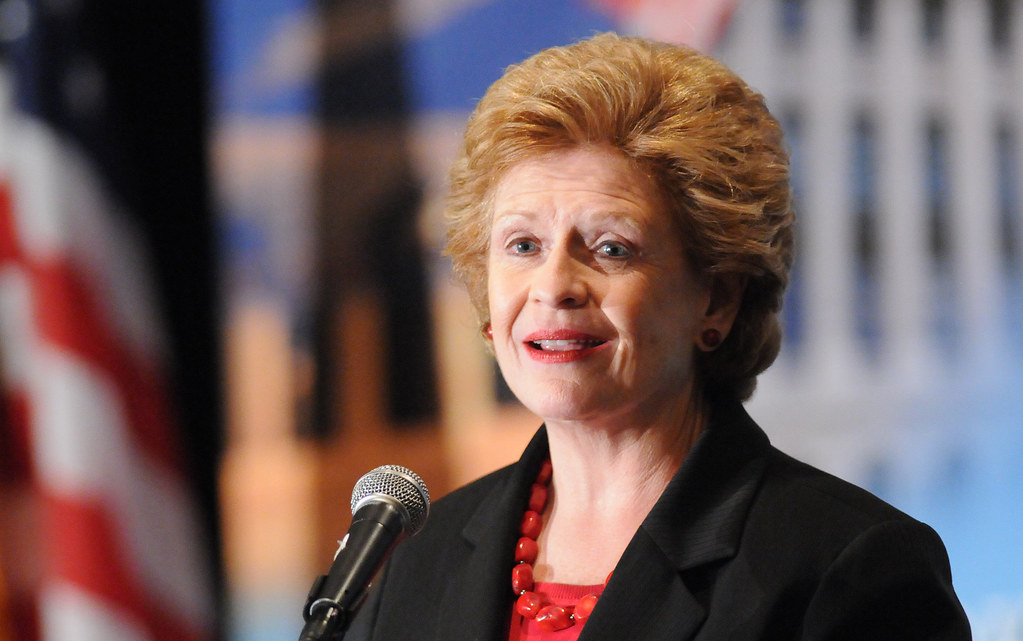The U.S. Senate Agriculture Committee has unveiled a new version of the U.S. Farm Bill that would shut down an out-of-control market for intoxicating hemp products by banning non-industrial uses of hemp.
Provisions in the 1,400-page draft measure could finally close a loophole created in the landmark 2018 Farm Bill, which legalized hemp and all downstream products federally, but failed to account for the possibility that “high”-producing substances could be cooked up from hemp-derived CBD in the lab.
That gap gave free rein to renegade producers of the intoxicating products – and the dodgy suppliers who trade in the hemp-derived CBD that is the base material for most of the substances.
Two years delayed
The draft was published Monday by Senate Agriculture Committee Chair Debbie Stabenow, a Michigan Democrat. Originally the 2023 Farm Bill, the agriculture omnibus legislation was delayed last year, and is not expected to get consideration until after the 119th Congress convenes in January.
According to the bill’s direct language, ‘‘The term ‘industrial hemp’ means the plant Cannabis sativa L. if the harvested material is only (i) the stalks of that plant, fiber produced from those stalks, or any other manufactured product, derivative, mixture, or preparation of those stalks (except cannabinoid resin extracted from those stalks); (ii) whole grain, oil, cake, nut, hull, or any other compound, manufactured product, derivative, mixture, or preparation of the seeds of that plant (except cannabinoid resin extracted from the seeds of that plant); (iii) viable seeds of that plant produced solely for production or manufacture of any material described in clause (i) or (ii).”
To fall under the definition of “industrial hemp,” material harvested explicitly ‘‘will not be used in the manufacturing or synthesis of natural or synthetic cannabinoid products,’’ according to the draft bill.
By also redefining legal hemp to include “total THC” content, the Senate bill seeks to restrict such products while sharpening federal hemp laws. The new bill would retain the maximum THC level for industrial hemp at 0.3%, but that threshold would apply to all forms of THC in industrial hemp combined, and not just delta-9 as in the original Farm Bill. In addition to trace amounts of delta-9 THC, hemp plants also carry very low amounts of THCA, and delta-8 and delta-10 forms of THC.
Consumers in mind
Consumers have for two years or more been at the mercy of the dodgy makers of intoxicating hemp substances found in popular snacks and treats widely available under no regulations and often packaged to be attractive to children.
The U.S. Food & Drug Administration (FDA) has repeatedly warned consumers about hemp-derived intoxicants – known variously as “diet weed,” “marijuana light,” or “gas station pot” – noting that the unregulated and therefore often unsafe products may contain harmful chemicals, and should be kept away from children and pets. The FDA has also warned producers that the products are not categorized under GRAS (generally recognized as safe) guidelines and that any food containing the compounds is therefore also adulterated.
In the absence of federal laws or rules to govern the hemp intoxicants, states throughout the U.S. are working to get their arms around a runaway market for products that contain them. Recreational and medical marijuana stakeholders have piled on, arguing the hemp intoxicants represent unfair competition because they are not burdened by rules and fees in states that have legal marijuana markets.
Fighting intoxicants
Other draft legislation features optional strategies for dealing with intoxicating hemp products. Illinois Rep. Mary Miller, a Republican member of the House agriculture committee, has proposed an amendment that would constrain the definition of hemp to include only naturally occurring, naturally derived cannabinoids, wiping out the lab-made synthetic intoxicants.
Also, language in a U.S. House version of the new Farm Bill floated earlier this year subdivides hemp into plants grown for flowers to produce cannabinoid extracts from which the psychoactive hemp substances are derived, and the more traditional “industrial hemp,” which includes crops farmed for food in the form of grain, and those grown for the plant’s valuable fibers. The two categories would be treated differently in regulations.
A legislative proposal separate from the Farm Bill, the Cannabinoid Safety and Regulation Act (CSRA) would not ban intoxicating hemp substances but would set up a regulatory framework for CBD and other hemp-derived cannabinoids under the Food and Drug Administration (FDA).
Also in Senate bill
Beyond product restrictions, the Senate bill unveiled this week introduces a “certified seed pilot program” to help farmers mitigate the risk of THC levels exceeding legal limits. Up to five states or tribal governments would certify hemp seed varieties bred for low THC levels. Farmers using these certified seeds could apply for exemptions from testing requirements, though these would be temporary and renewable after three years.
Another notable change is the proposed relaxation of regulatory barriers for industrial hemp farmers. Licensing requirements would ease, allowing visual inspections or performance-based sampling methods in place of current strict protocols.
Background checks for license applicants would also be eliminated, and the bill suggests removing a ban on participation by those with prior drug-related felony convictions. However, it remains unclear if this measure survived into the final draft of the proposed legislation.
The bill also reaffirms commitments to social equity. A provision aims to lift the lifetime ban on Supplemental Nutrition Assistance Program (SNAP) benefits for individuals with prior felony drug convictions, ensuring pathways to economic self-sufficiency for those who have paid their debt to society.
With the 2018 Farm Bill’s extension expired as of September 2023, lawmakers face a tight deadline and are unlikely to pass updated legislation before the current Congress adjourns in January.

